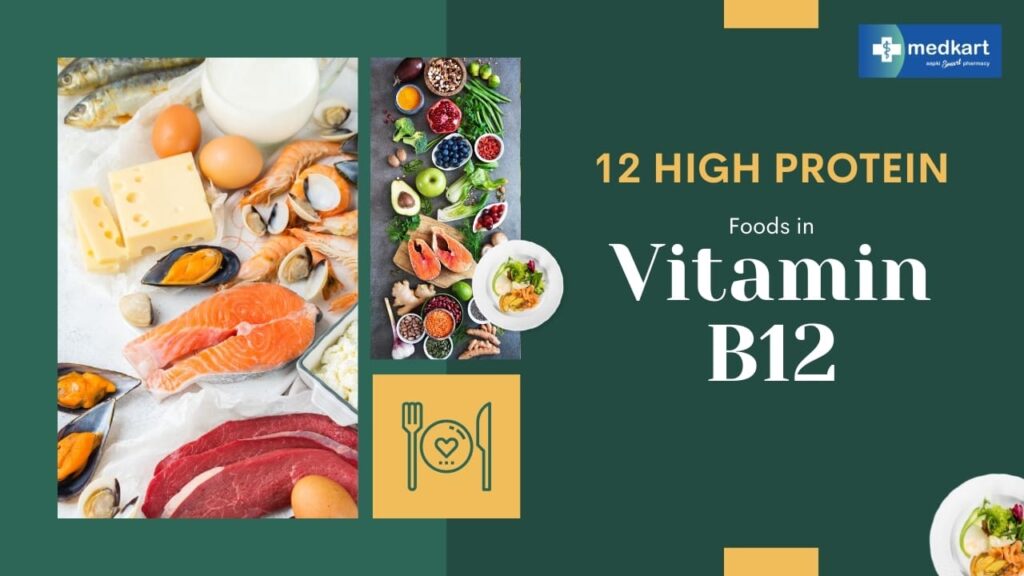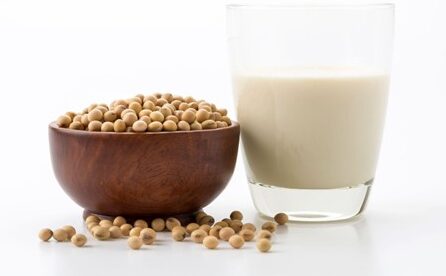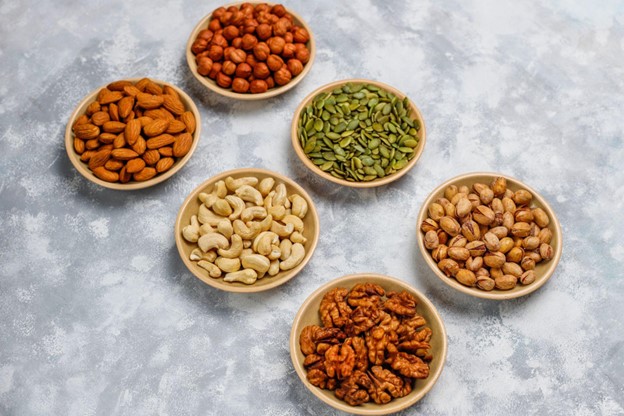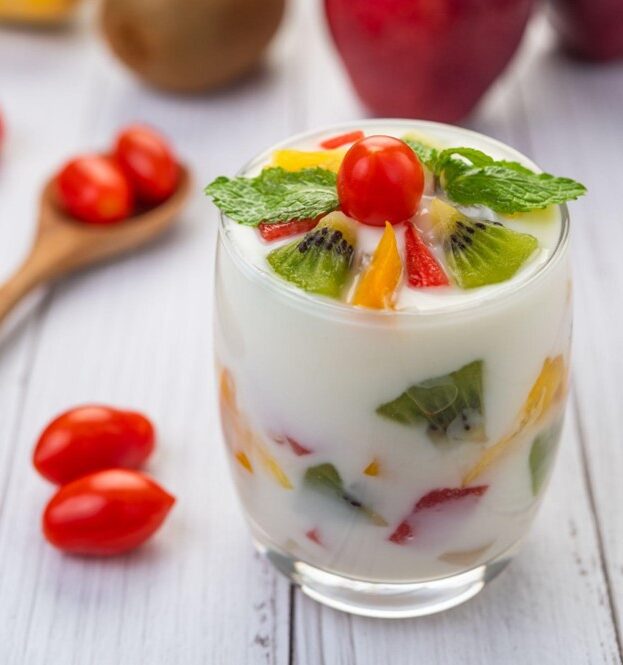Last updated on April 10th, 2025 at 12:46 pm

Vitamin B12, or cobalamin, is a vital nutrient involved in the maintenance of healthy nerve cells, production of DNA, and facilitation of red blood cell formation. It is important for energy metabolism and brain function. Though vitamin B12 is naturally found in more abundant amounts in animal-based food products, vegetarians and vegans may often lack enough.
Animal-Based Vitamin B12 Foods
Eggs
Eggs are an excellent source of protein and vitamin B12, particularly the yolk. They are versatile and can be included in various meals, from breakfast omelets to salads.
B12 Content : 1.4 mcg per two large eggs (~25% of the daily requirement).
Dairy Products
Milk, cheese, and yogurt are among the best sources of vitamin B12 for vegetarians. Paneer (Indian cottage cheese) is a popular protein-rich choice in Indian diets.
B12 Content : 1 cup of milk provides ~1.2 mcg of B12.
Fish
Fatty fish like salmon, trout, and tuna are rich in both protein and vitamin B12.
B12 Content : A 3-ounce serving of salmon provides ~4.9 mcg of B12 (~200% of the daily value).
Meat and Poultry
Lean cuts of beef, chicken, and turkey offer significant amounts of protein and vitamin B12.
B12 Content : A 3-ounce serving of beef liver has a whopping 70 mcg of B12 (~2,900% of the daily requirement).
Shellfish
Clams, mussels, and oysters are among the richest sources of B12.
B12 Content : A 3-ounce serving of clams contains ~84 mcg of B12 (~3,500% of the daily value).
Vitamin B12 Veg Foods and Plant-Based Options
Fortified Foods
Many plant-based milk alternatives (like soy, almond, and oat milk) and breakfast cereals are fortified with vitamin B12.
B12 Content : A cup of fortified soy milk contains ~2.5 mcg of B12.

Nutritional Yeast
Popular among vegans, nutritional yeast is often fortified with vitamin B12 and provides a cheesy flavor to dishes.
B12 Content : 2 tablespoons can provide up to 6 mcg of B12.
Fermented Foods
Certain fermented foods, like tempeh and miso, may contain trace amounts of B12 due to bacterial action, though they are not reliable sources.
Seaweed and Algae
Nori (used in sushi) and spirulina have some B12-like compounds. However, these are not biologically active forms suitable for human absorption.
Vitamin B12 Rich Dry Fruits
While dry fruits like almonds and walnuts are rich in protein, they are not natural vitamin B12 food sources. Pairing them with fortified foods can help maintain a balanced diet.

Vitamin B12 Foods Vegetarian Indian Options
Paneer and Yogurt
These dairy products are staples in vegetarian Indian diets, offering protein and B12 in a culturally relevant way.
Fortified Indian Staples
Fortified wheat flour, rice, and nutritional supplements like malt-based health drinks are becoming common in India.
How to Increase B12 Levels
Vitamin B12 is essential for red blood cell production, nerve health, and DNA synthesis. Deficiency in B12 can lead to fatigue, memory issues, and anemia. Here’s how you can effectively boost your B12 levels:
Incorporate B12-Rich Foods
The best sources of vitamin B12 are animal-based foods like meat (especially liver), fish, eggs, and dairy products. For vegetarians, fortified foods such as plant-based milks, breakfast cereals, and nutritional yeast are excellent alternatives.
Choose Supplements
If your dietary intake is insufficient, vitamin B12 supplements in the form of tablets, sublingual drops, or sprays can help. These are particularly useful for vegans, older adults, or those with absorption issues.
Consider Injections
For severe deficiencies, especially in individuals with conditions like pernicious anemia or gastrointestinal disorders, doctors may recommend B12 injections for immediate replenishment.
Focus on Gut Health
A healthy digestive system is crucial for absorbing B12. Probiotics, fiber-rich foods, and addressing gut issues like IBS or gastritis can enhance absorption.
Monitor Underlying Conditions
Certain health problems, like Crohn’s disease, celiac disease, or prolonged use of antacids, can hinder B12 absorption. Addressing these conditions with medical guidance is essential.
Regular Testing
Regular blood tests to monitor B12 levels help ensure timely action if levels drop. The normal range for B12 is 190–950 pg/mL.
Vitamin B12 Normal Range
Vitamin B12 normal range is from 190 to 950 picograms per milliliter (pg/mL). Levels below 200 pg/mL indicate a deficiency.
Vitamin B12 Fruits List
Vitamin B12 is primarily found in animal-based food products, fortified foods, and little in fruits. Fruits do not produce vitamin B12 naturally because this is a nutrient synthesized by bacteria found in large amounts only in animal-derived or fortified products. However, some of these fruits can indirectly help in vitamin B12 management through general health conditions and better nutrient absorption.
Fruits to Pair with Vitamin B12-Rich Foods
Bananas
Bananas are a rich source of folate, potassium, and fiber, supporting digestion and nutrient absorption. Pairing bananas with fortified cereals or plant-based milk enriched with vitamin B12 can create a balanced meal.
Oranges
Packed with vitamin C, oranges aid in iron absorption, which indirectly supports red blood cell production—a process linked to vitamin B12. Fortified orange juice can also provide B12, depending on the product.
Apples
High in antioxidants and fiber, apples are excellent for maintaining digestive health, which is crucial for absorbing vitamin B12 from food.
Avocados
Though technically a fruit, avocados are rich in healthy fats and B-complex vitamins, including small amounts of folate, complementing B12 in fortified foods.
Berries (Strawberries, Blueberries, Raspberries)
Berries are rich in antioxidants and vitamins like vitamin C. Consuming them with fortified breakfast cereals or yogurt can enhance the nutritional value of your diet.
Fortified Fruit Juices: A Source of Vitamin B12
Some fruit juices, particularly those targeted at health-conscious consumers, are fortified with vitamin B12. Examples include:
- Fortified orange juice
- Fortified apple juice
- Fortified mixed fruit juices
Always check the product label to confirm the addition of vitamin B12.
Why Fruits Are Important in a Vitamin B12 Diet
While fruits do not contain vitamin B12, they offer numerous benefits that indirectly support its absorption and utilization:
Improved Digestion
The fiber content in fruits like apples, bananas, and berries helps maintain a healthy digestive system, enabling efficient absorption of vitamin B12 from food.
Antioxidant Support
Fruits rich in antioxidants (like berries and oranges) protect the body from oxidative stress, supporting overall metabolic health.
Enhanced Nutrient Synergy
Vitamin C in fruits boosts iron absorption, which can help optimize red blood cell health alongside vitamin B12.
Tips to Incorporate Fruits into a Vitamin B12-Rich Diet
Smoothies with Fortified Milk
Blend fruits like bananas, strawberries, and mangoes with fortified plant-based milk to create a B12-enriched smoothie.
Fruit Salads with Yogurt
Combine a variety of fruits with fortified yogurt for a nutritious snack.
Fortified Juices as Refreshers
Include fortified fruit juices in your daily routine to supplement your B12 intake.
Fruits with B12 Supplements
Take fruits alongside B12 supplements or fortified foods to create a balanced nutrient profile.

Conclusion
While there is no definitive “vitamin B12 fruits list,” fruits play an essential supporting role in maintaining overall health, aiding in nutrient absorption, and complementing a B12-rich diet. For those relying on vegetarian or vegan diets, fortified fruit juices and plant-based milk are valuable sources of vitamin B12. By pairing these fortified options with fresh fruits, you can enhance your diet and help maintain optimal levels of this vital nutrient.
For individuals with confirmed vitamin B12 deficiency, consult a healthcare professional for appropriate supplementation and dietary adjustments to meet your nutritional needs.
FAQs On 12 High-Protein Foods High in Vitamin B12
1. Can Vitamin B12 Deficiency Be a Sign of Cancer?
Vitamin B12 deficiency itself is not directly linked to cancer but may indicate underlying conditions like pernicious anemia, which is associated with stomach cancer. Persistent deficiency should be evaluated by a healthcare provider. Maintaining adequate vitamin B12 levels is essential for overall health. Whether through animal-based sources, fortified products, or supplements, ensure you meet your daily requirements to avoid potential health complications.
2. Can Fruits Contain Vitamin B12?
Fruits themselves do not naturally contain vitamin B12, but some fortified fruit juices and products may have added B12 to meet dietary needs. These fortified options are especially helpful for vegetarians, vegans, and individuals seeking plant-based alternatives.
3. Which high-protein foods are the best sources of vitamin B12?
Animal-based foods like fish (salmon, trout), meat (beef liver, chicken), eggs, and dairy products are excellent high-protein and B12-rich options. Fortified plant-based foods like soy milk and nutritional yeast are great for vegetarians.
4. Are there any vitamin B12-rich foods for vegetarians?
Yes, vegetarians can get vitamin B12 from dairy products like milk, yogurt, and paneer, as well as fortified foods like cereals and plant-based milks. Nutritional yeast is another vegetarian-friendly option.
Related Links :
Monsoon season diet guide
14 Healthy foods for healthy diet
Top 7 Foods Good for Liver Health
How to Gain Weight Fast and Naturally
How to Cleanse Your Body with Home Remedies
What foods should you avoid from cholesterol
